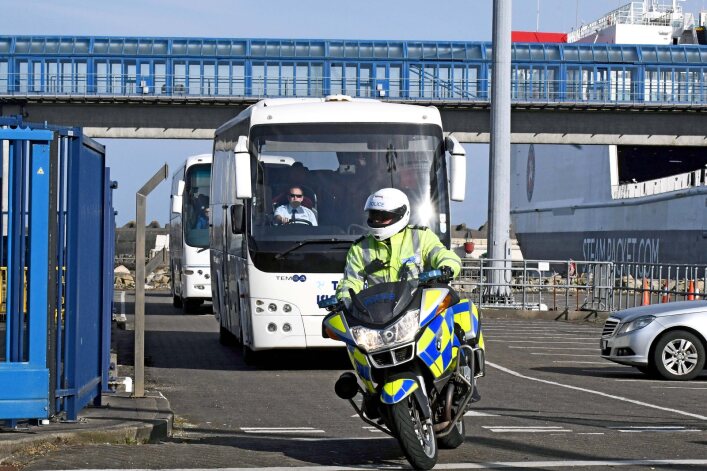The decision to quarantine residents in the Comis Hotel was ‘awful’ for everyone involved but lawful and ‘proportionate in the circumstances’, the Brunner review concludes.
Those who were quarantined at the Comis told the Covid inquiry that the felt like they were treated as prisoners for the 14-day duration, starting from the moment they were escorted by police on the bus from the Sea Terminal.
The Covid report acknowledges that it is recognised that the use of police escort, completed with flashing blue lights, was inappropriate.
There was particular hardship for some confined to their rooms at the Comis, including a mother and a young child, a mother and a baby, and an 87-year-old who had never experienced isolation in their life.
There appears to have been a lack of proper support from mental health services, notes the Brunner review.
Given the controversy over the decision to shut out residents and quarantine in a hotel, independent legal advice was obtained which concluded it was not unlawful.
The report says: ‘The decision to quarantine residents in the Comis Hotel amounted to a restriction of liberty rather than deprivation of liberty.’
And given that it operated in a relatively short timeframe, between April 11 and May 13, in the early days of the pandemic when there was limited available evidence about the virus and its implications, the decision to quarantine was proportionate in the circumstances, it adds.
The report finds that aspects of lockdown were inappropriately harsh on some sectors of society. In particular, bubbles between single parents and others who lived alone were not allowed until the third lockdown.
A harsh regime was created where many new criminal offences came into existence. This was compounded by prison sentences being made available for most if not all breaches of Covid regulations.
Many offences were committed by people who had a good excuse for committing them - because having a good excuse was often not a defence.

-(2).jpeg?width=209&height=140&crop=209:145,smart&quality=75)
.jpeg?width=209&height=140&crop=209:145,smart&quality=75)
.jpeg?width=209&height=140&crop=209:145,smart&quality=75)

Comments
This article has no comments yet. Be the first to leave a comment.